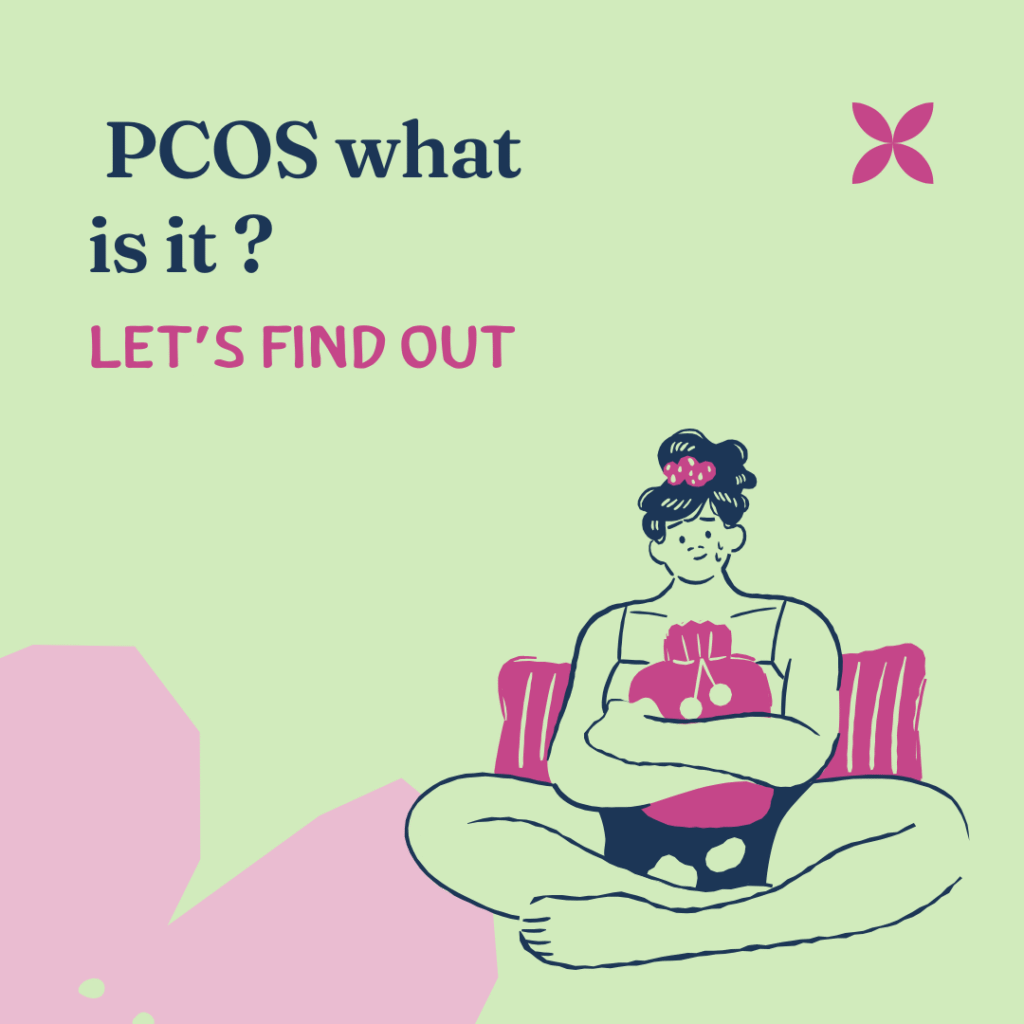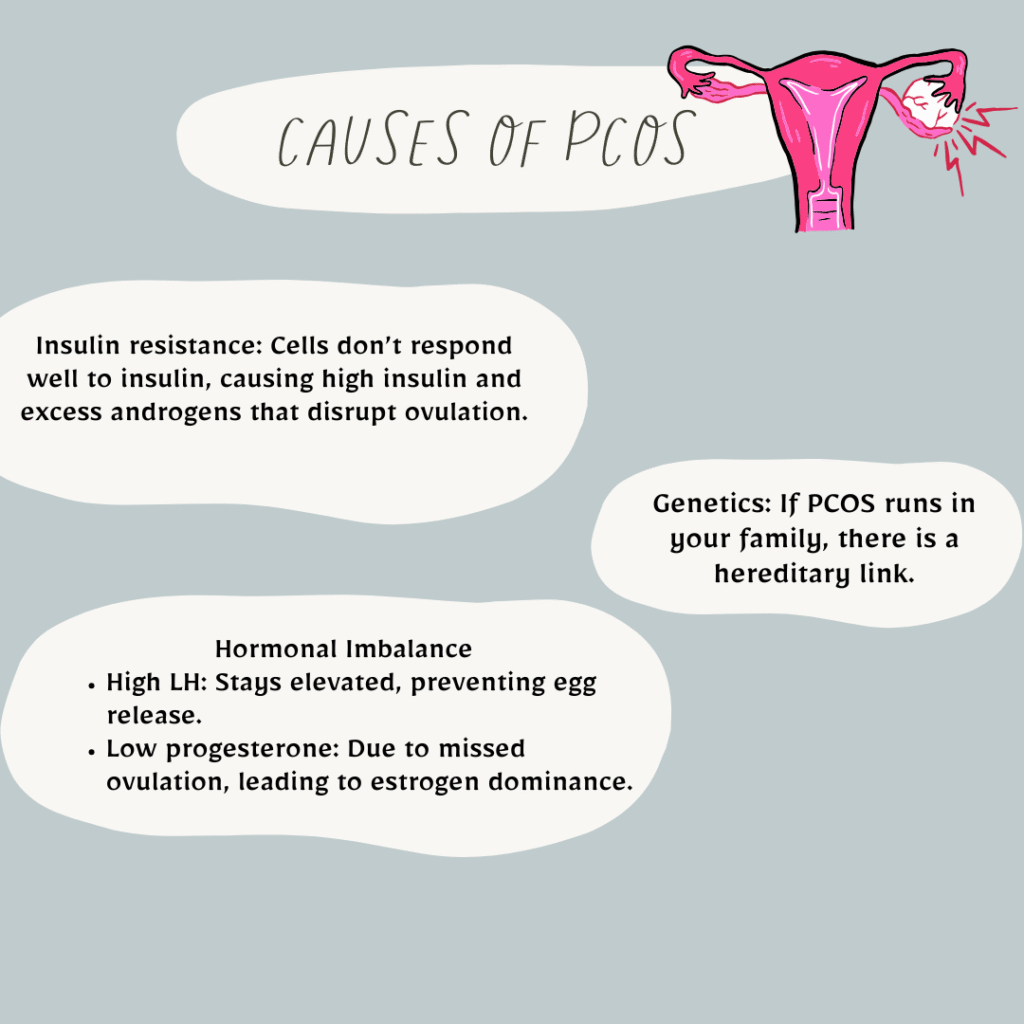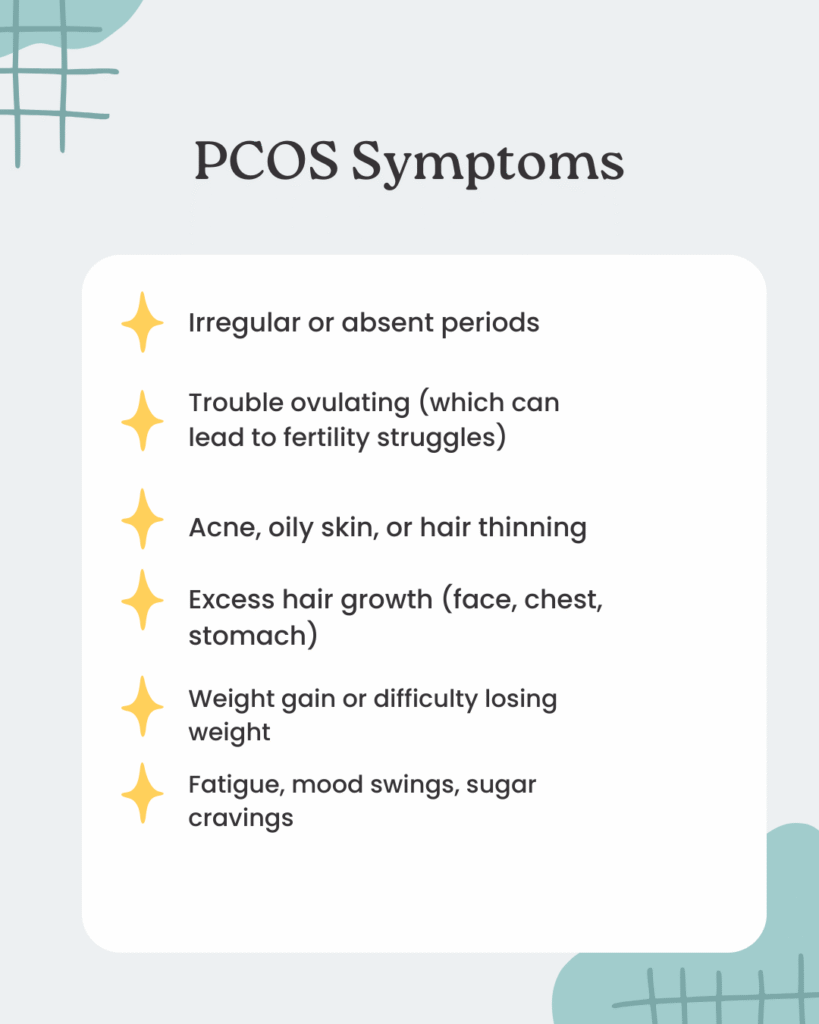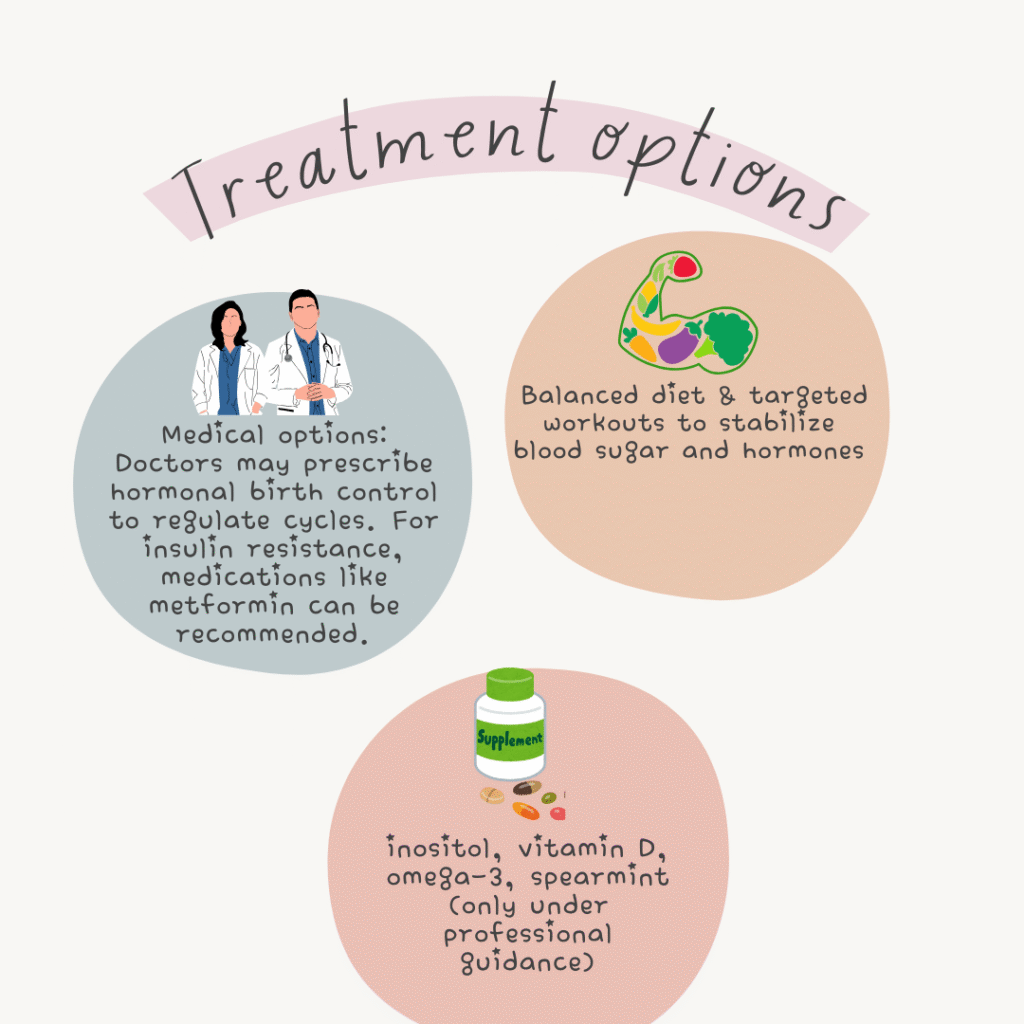
Introduction
PCOS, which stands for polycystic ovary syndrome, is a common reproductive condition that affects millions of women worldwide. Yet for many, it can feel like a lonely and frustrating journey. Beyond missed or irregular periods, it touches almost every part of a woman’s health including hormones, metabolism, weight, skin, fertility, and emotional wellbeing. In this post, I’ll walk you through the causes, symptoms, and management options that may give you insight and a deeper understanding of the condition.
What is PCOS?
Polycystic literally means “many cysts.” In PCOS, the ovaries often develop small fluid-filled sacs called follicles. These are not true cysts but immature eggs that haven’t matured enough to trigger ovulation. This is why the condition is called polycystic ovary syndrome, even though not every woman with PCOS will show cysts on the ovaries during an ultrasound.
Causes of PCOS
PCOS is not a one-size-fits-all condition, and its causes can vary from woman to woman. Some of the main factors include:
- Insulin resistance: The hormone insulin helps move glucose (sugar) from the blood into the cells. With insulin resistance, the body does not respond properly to insulin, so glucose remains in the blood. To compensate, the body produces more insulin, which can push the ovaries to make more androgens. These excess androgens disrupt ovulation and cause irregular cycles.
- Genetics: If PCOS runs in your family, there is a hereditary link.
- Hormonal imbalance:
- Excess androgens: High levels of male hormones disrupt the balance needed for ovulation.
- Excess LH: Normally, LH rises only at mid-cycle to signal ovulation. In PCOS, LH can remain high throughout the cycle, so the body misses the signal to release an egg.
- Low progesterone: After ovulation, progesterone helps balance estrogen. But since ovulation is often missed in PCOS, little or no progesterone is made, which leads to further imbalance.
Here is a summary info graphic for the causes

Symptoms of PCOS

If you experience several of these symptoms, it is highly advisable to see a gynecologist.
Diagnosis
Doctors usually recommend hormone blood tests to check levels of testosterone, insulin, LH, FSH, and DHEA-S (an androgen). In addition, an ultrasound may be done to see if the ovaries appear polycystic.
Treatment and Management
There is currently no cure for PCOS, but it can be managed in different ways:

Conclusion
Living with PCOS is not an easy journey. It can be mentally and emotionally draining, but you are not alone and it is not the end. It is a common condition among women, and here you have found a community you can lean on for support. As an added resource, I have a guest post on a PCOS story that may give you comfort and encouragement as you navigate your own journey.

